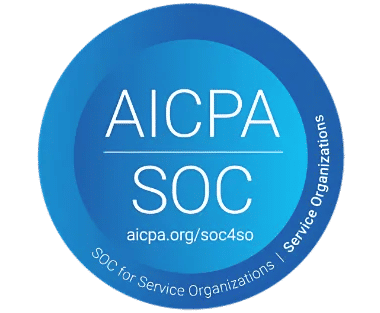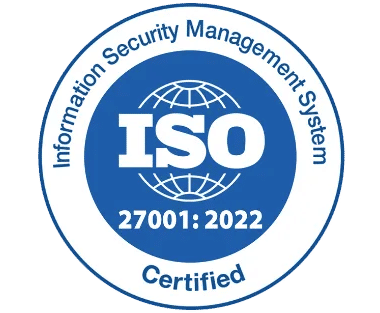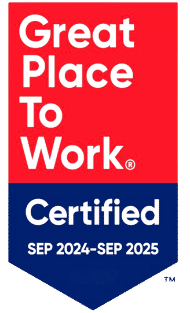Why Every Business Needs Easy-to-Use Asset Management Software to Improve Efficiency

Managing assets effectively is crucial for any organization. Companies require tools that streamline tracking, enhance visibility, and optimize resource utilization. A key component of this strategy is using easy-to-use asset management software.
Asset management software plays a vital role in overseeing company assets, ensuring they are accounted for and maintained efficiently. One such product that exemplifies ease of use is Asset Management 365, designed to simplify asset tracking for businesses of all sizes.
Explore Why Every Business Should Adopt Easy-to-Use Asset Management Software
Every business can benefit from adopting user-friendly asset management solution, which simplifies tracking, enhances accountability, and boosts overall productivity. By streamlining workflows and providing real-time insights, these tools are essential for optimizing asset performance.
Enhancing Operational Efficiency with Simplified Asset Tracking
The primary function of an asset management system is to keep track of all company assets. Businesses can achieve greater visibility and improved management of their resources, crucial for maintaining operational efficiency.
- User-friendly interface: Users prefer systems that are easy to navigate. When they can easily track asset statuses, submit requests, and access reports through an intuitive platform, it reduces frustration.
- Real-time visibility: An easy-to-use system provides real-time data on asset utilization and availability. Asset Management 365’s tracking features ensure that managers can monitor assets efficiently, preventing losses and optimizing usage.
- Automated notifications: Many companies benefit from automatic alerts for maintenance, depreciation, and audits. The asset management system can send notifications, allowing teams to address issues proactively, thereby reducing downtime.
Streamlining Internal Processes and Improving Team Collaboration
In addition to enhancing asset tracking, easy-to-use asset management software streamlines internal operations, making it easier for teams to manage resources and collaborate effectively.
- Automation of routine tasks: This software automates many repetitive and time-consuming tasks, such as asset categorization, tracking, and reporting. This allows teams to focus on more strategic initiatives, boosting overall productivity.
- Collaboration features: Asset Management 365 includes tools for team collaboration, such as shared dashboards and communication tools, facilitating better coordination among team members. Effective collaboration leads to faster problem-solving and improved efficiency.
- Centralized asset management: This provides a centralized platform for managing all assets, whether physical or digital. Having everything in one place makes it easier for teams to stay organized and track their assets efficiently.
Faster Onboarding and Reduced Training Time
When adopting new technology, businesses often face a learning curve that can slow down operations. One of the major advantages of Asset Management 365 is its simplicity, which shortens onboarding time for new employees and reduces the need for extensive training.
- Intuitive design: A complex user interface can hinder productivity. However, with an intuitive design, even non-technical staff can quickly learn how to navigate the system, reducing training time.
- Minimal setup: Implementing asset management solution is straightforward and doesn’t require extensive technical expertise. This ease of setup is particularly beneficial for small and medium-sized businesses that may lack dedicated IT resources.
- Versatility across sectors: Whether in manufacturing, IT, or healthcare, Asset Management 365 is adaptable, allowing employees from various sectors to use it effectively without requiring industry-specific training.
Improving Accountability and Transparency in Asset Management
Effective asset management software enhances accountability and transparency within teams. By adopting this tool, businesses can gain better control over their asset management processes and foster a culture of accountability.
- Tracking and reporting: Asset Management 365 provides detailed analytics and reporting features, enabling businesses to track key performance indicators (KPIs) such as asset utilization and maintenance schedules. This visibility allows managers to identify inefficiencies and optimize processes.
- Ownership and tracking: Assets are assigned to specific team members, ensuring clear ownership and accountability. The system tracks each asset’s status, providing transparency regarding its management and maintenance.
- Enhanced communication: Keeping stakeholders informed is critical for effective asset management. The system allows businesses to send automated updates regarding asset statuses and maintenance schedules, fostering trust and cooperation.
Cost Efficiency and Scalability
While optimizing asset management is vital, businesses also need to manage costs. One of the reasons every business should consider an easy-to-use asset management solution is affordability and scalability.
- Cost-effective for all sizes: This software offers flexible pricing plans, making it accessible for small and medium-sized businesses. Its ease of use eliminates the need for costly training programs or dedicated IT staff.
- Scalable with growth: As businesses grow, their asset management needs evolve. This software is designed to scale effortlessly, allowing companies to add new users and asset categories as their needs expand.
- Integration with existing tools: Asset Management 365 integrates smoothly with other business tools, such as ERP systems and project management software. This integration saves costs and improves
Conclusion
Adopting easy-to-use asset management software allows businesses to improve efficiency, enhance accountability, and achieve greater operational success. With its user-friendly interface and automation capabilities, it ensures that organizations can meet the growing demands of asset management while keeping teams productive and engaged.
By implementing Asset Management 365, businesses can optimize resource utilization while enhancing overall operational efficiency and reducing costs. The result? A more efficient organization and improved asset performance.
Frequently Asked Questions
1. What are the key benefits of using asset management software?
Asset management software simplifies tracking by providing an intuitive interface, automating routine tasks, and improving resource visibility. It enhances accountability and streamlines internal workflows.
2. How does asset management software improve operational efficiency?
By offering features like real-time tracking, automated notifications, and centralized management, asset management software enables businesses to manage assets more effectively, leading to increased efficiency.
3. Can asset management software be customized for different industries?
Yes, most asset management tools, including Asset Management 365, can be tailored to fit various industries. They offer customizable features that align with specific business needs.
4. How does asset management software impact team productivity?
The software automates routine tasks and improves collaboration, reducing the workload on teams. This enables faster problem-solving and enhances overall productivity.









_svxLrd-8yH.png)

_2VYSFUTN5m.png)

_JiluXJRGNl.svg)

_2djTKNocf.png)





_Rapo0hRMBy.png)










